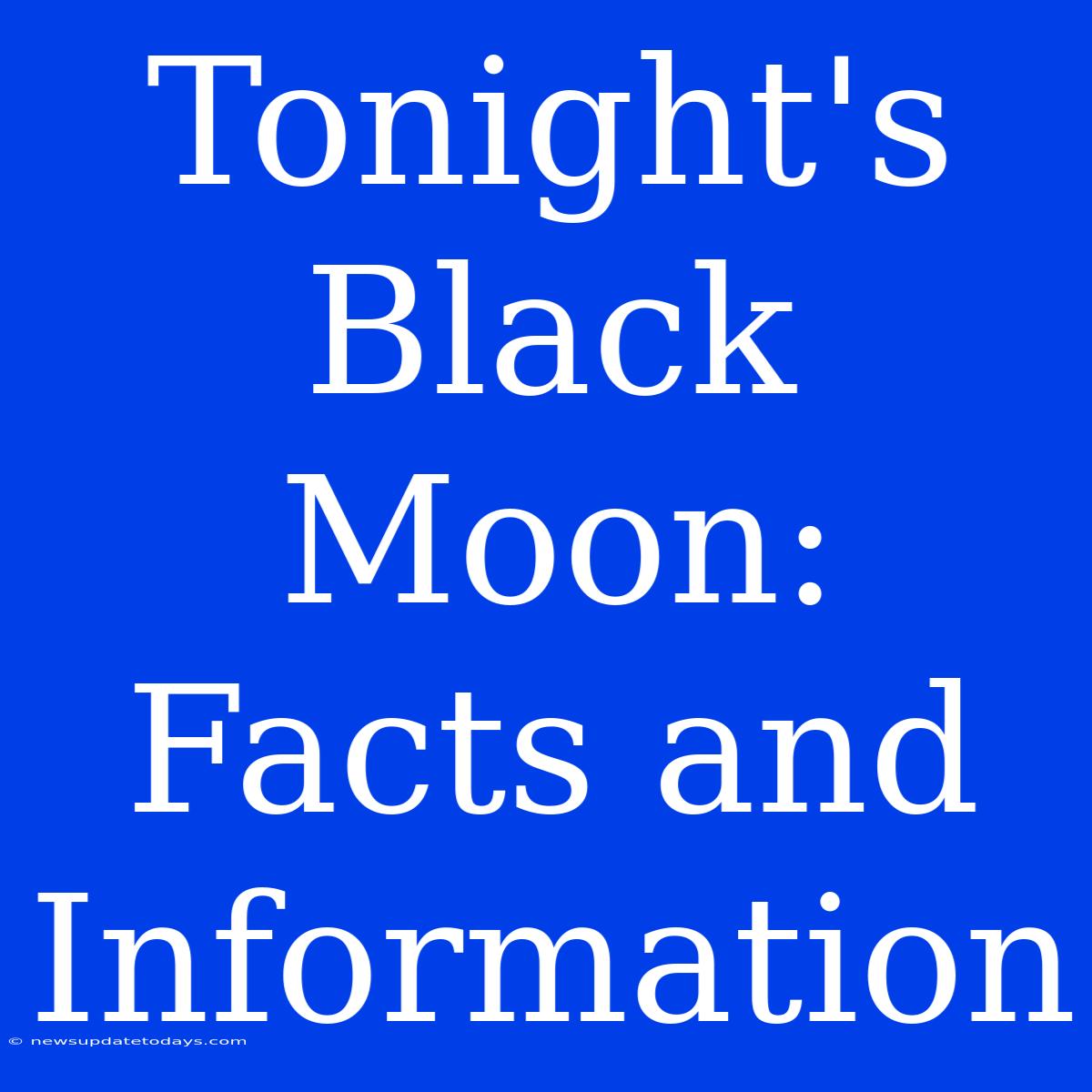Tonight's Black Moon: Unveiling the Mystery
Tonight's sky holds a celestial secret – a Black Moon. But what exactly is a Black Moon, and why is it generating so much buzz? This article delves into the facts and fascinating information surrounding this rare lunar event.
What is a Black Moon?
Unlike a "blue moon," which refers to the second full moon in a single calendar month, a Black Moon is a bit more nuanced. It generally refers to one of two things:
-
The second new moon in a single calendar month: This is the most commonly understood definition. Because the lunar cycle is roughly 29.5 days, it's possible for a new moon to occur twice within a single month. This second new moon is often referred to as a Black Moon.
-
The absence of a new moon in a calendar month: This definition is less common but equally valid. In some months, a new moon is entirely absent. This, too, can be considered a Black Moon.
Importantly, a Black Moon isn't actually invisible; it's simply not visible to the naked eye. Because a new moon is positioned between the Earth and the Sun, its sunlit side faces away from us, rendering it essentially dark and unobservable.
Tonight's Black Moon: Speculation and Significance
The excitement surrounding "tonight's Black Moon" likely stems from its rarity. While new moons occur monthly, the occurrence of a second new moon within the same month is less frequent.
It's crucial to note that there's no scientific basis for associating Black Moons with unusual events or heightened spiritual significance. The term itself is relatively modern and doesn't hold any ancient astronomical meaning. Any perceived connection between a Black Moon and supernatural events is purely coincidental.
Observing Tonight's Black Moon (or lack thereof)
Since a Black Moon is inherently unobservable, you won't see anything spectacular in the night sky. However, you can still appreciate the event by understanding its astronomical significance. You can utilize astronomy apps or websites to track the moon's phases and confirm the precise timing of tonight's new moon.
Black Moons vs. Other Lunar Events
It's easy to confuse a Black Moon with other lunar phenomena. Let's clarify the differences:
- Blue Moon: Two full moons in a single calendar month.
- Supermoon: A full moon that occurs when the moon is closest to Earth in its orbit, appearing larger and brighter.
- Lunar Eclipse: When the Earth passes between the sun and the moon, casting a shadow on the moon.
Conclusion: Embracing the Mystery
While tonight's Black Moon might not offer a dazzling visual spectacle, it offers an opportunity to expand our understanding of lunar cycles and appreciate the subtle complexities of our solar system. The rarity of this event underscores the continuous and fascinating dance between the Earth, the moon, and the sun. Instead of searching for the unseen, let's focus on appreciating the wonder of the cosmos itself.

